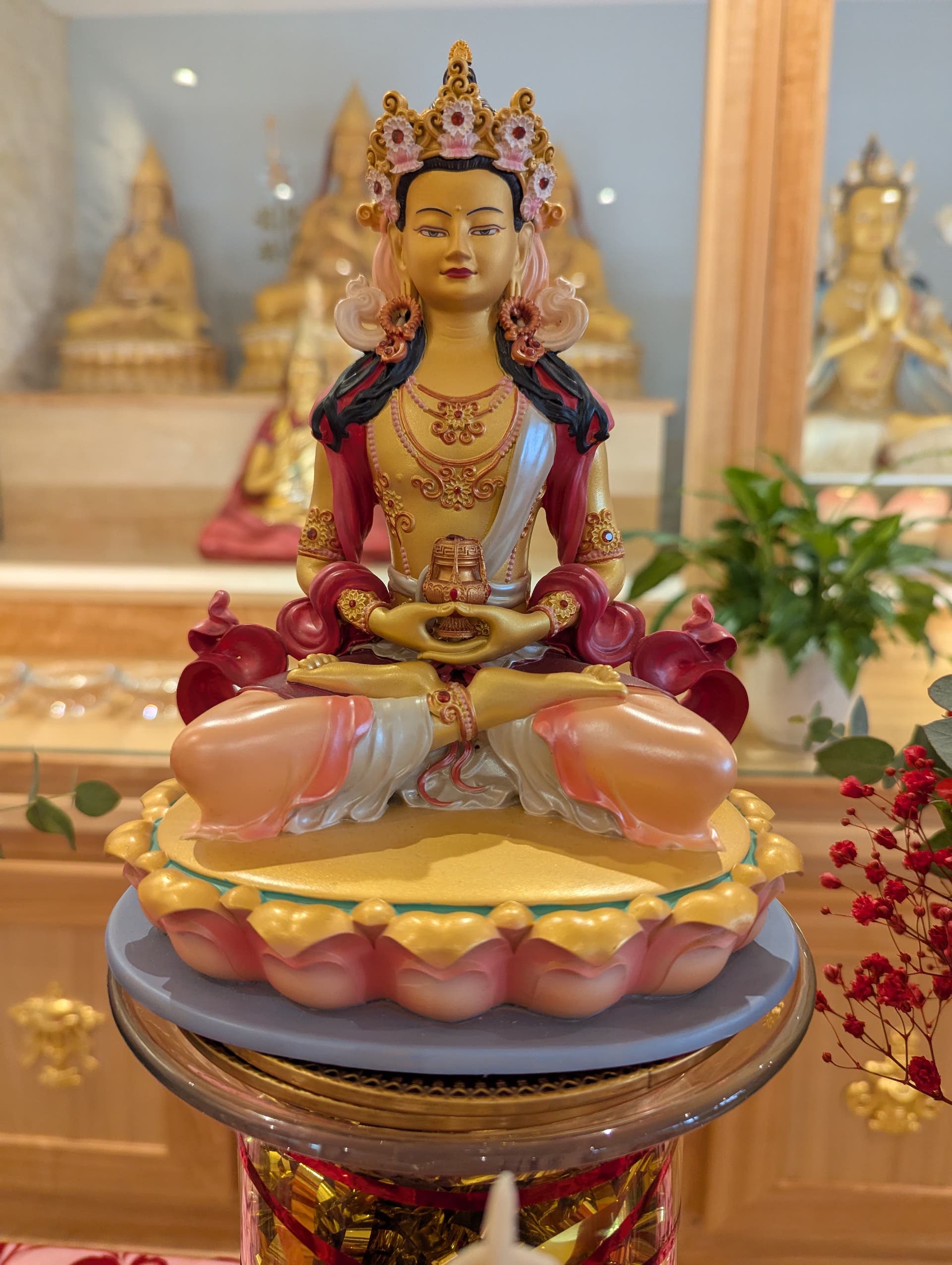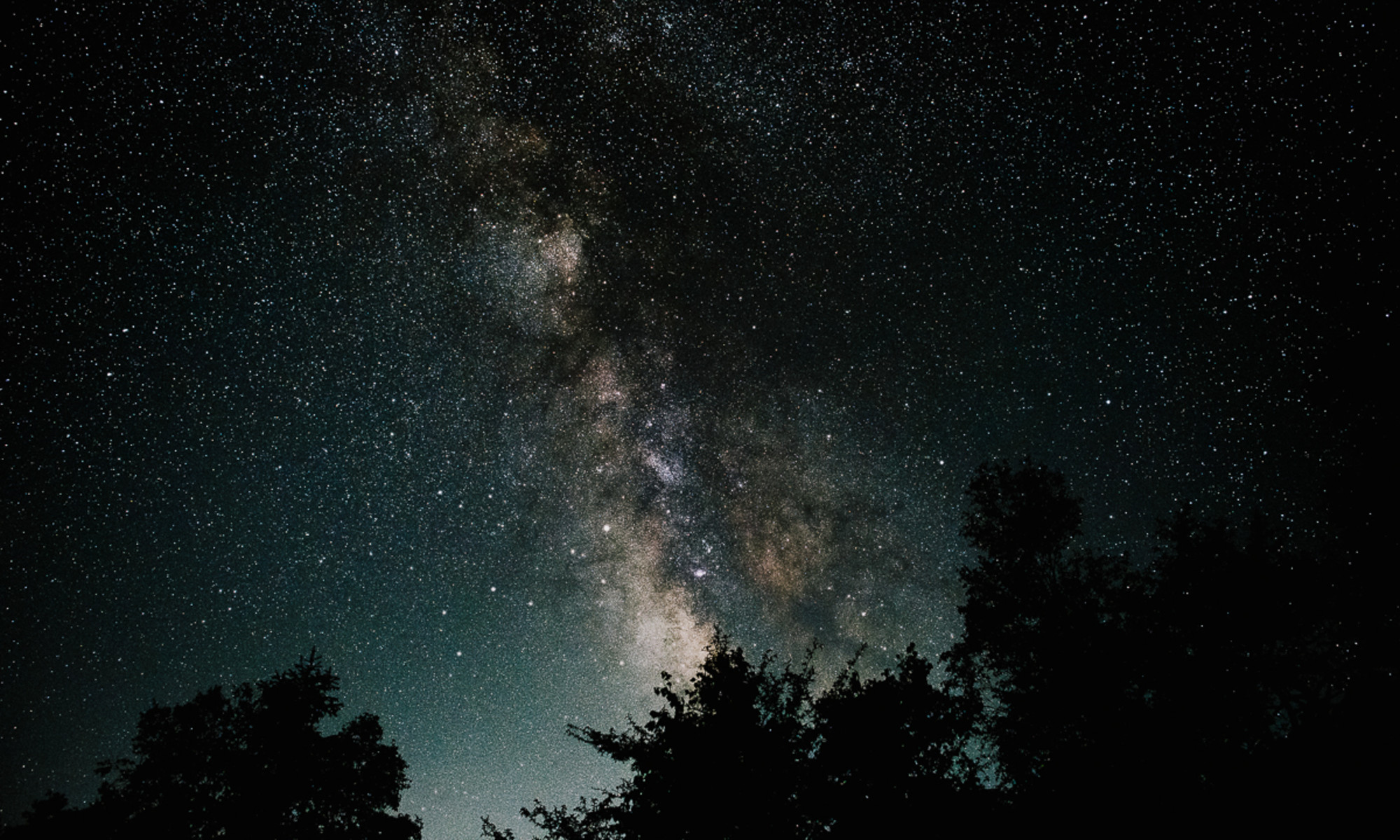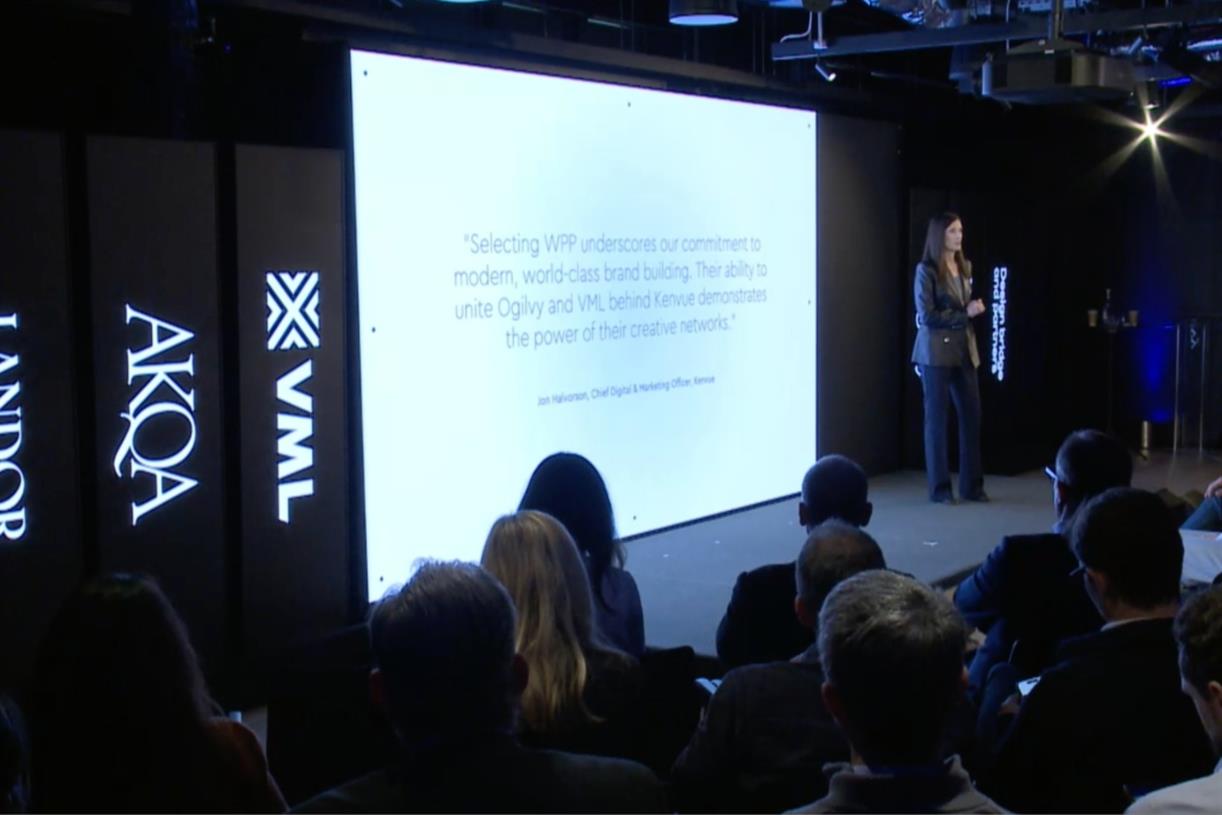God as Dhamma
A Slovenian writer, translator, and former monastic on how Buddhism contends with the archetype of an all-powerful creator The post God as Dhamma appeared first on Tricycle: The Buddhist Review.

The question of God is not only something that concerns believers within monotheistic religions such as Judaism, Islam, or Christianity. In truth, it is a fundamental human question—a question about the foundation of reality, about what transcends our usual understanding of the world and of ourselves that surpasses our limited view. Even in the Buddhist context, although expressed with different terms and emphases, similar inquiries arise: What is the fundamental order? What leads to awakening? What is “Truth”? What does it mean to live in accordance with the dhamma?
In classical Buddhist sources, we often read that Buddhism does not teach belief in a creator and that belief in a personal God is not necessary to understand suffering and the path to liberation. For this reason, some Buddhists describe their path as “nontheistic” or even “atheistic,” but these labels do not tell the whole story. For even the Buddhist path presupposes something that transcends the individual self—a reality that goes beyond the human yet deeply concerns us. What is the Truth not governed by craving, aversion, and ignorance? It is called dhamma. And although dhamma is often understood as the natural order or law, it is also the path, the meaning, the insight, the truth—something that invites the human being into transformation.
Thus, the question of “what do we mean when we say God?” does not necessarily refer to a personal being in the sky. It can also be understood more broadly: as a question about what transcends us and yet calls to us. Is “God” a person, a being, a symbol, a power, a pattern, an ethical order, an awareness, an emptiness? Or is it perhaps merely an empty word that we use to point to what lies beyond concepts?
Modern Christian theology (especially Catholic, which I am more familiar with), as well as many contemporary Buddhist thinkers, recognize that any speech about the transcendent is already conditioned—and therefore always partially mistaken. Everything we say about the beyond carries traces of our language, our culture, our personal longings. It is constructed. In this aspect, Buddhist and mystically oriented theological thought often unexpectedly meet: in the recognition that the truest words about Truth often remain silent.
Perhaps it is in this humble openness to mystery that we find a space of common encounter—a space where the goal is no longer to be right but to enter deeper understanding. This is no longer a debate about doctrine but a conversation about experience, about direct knowing, not the defense of hollow dogmatic boundaries.
If the concept of “God” feels too burdened by history and abuse, we can seek other names, but what it all points to remains: a reality that transcends us and simultaneously calls us to respond. A mystery that is not our possession but the space of our transformation. And perhaps it is in this search, in this stance that goes beyond certainties, that the paths of traditions meet—not in dogma but in respectful listening. Not in correct answers but in sincere questions. Not in a name but in relationship.
Buddha’s God
For many Buddhists, the word “God” sounds foreign—perhaps even unnecessary. The Buddhist path is shaped without the concept of a creator who stands above the world and governs it. And for that very reason, it’s important to first clarify: What are we really talking about when we say “God”? And is there perhaps a deeper dimension of reality that is touched by both those who use the word and those who avoid it?
In classical theistic thought—especially in Western religions—God is often understood as an all-knowing, all-powerful, eternal being who created the world, determines its destiny, and stands above humanity as both judge and protector. This is a view that the Buddha firmly rejected in several suttas. In the Brahmanimantanika Sutta (MN 49), for example, he exposes the limitations of Brahma—the highest god in Brahmanical cosmology—who sees himself as the creator but is unable to comprehend the true nature of reality. In the Kevaddha Sutta (DN 11), Brahma admits he does not know the answer to the fundamental question about the origin of the world and must defer to the Buddha. In the Brahmajala Sutta (DN 1), the Buddha unmasks how the myth of a creator arises from ignorance, not from insight. Such critique is not aimed at gods as such but at false metaphysical ideas that obscure direct insight and understanding.
Yet despite this critical stance toward the idea of a creator, Buddhism does not deny transcendent reality. Quite the opposite—it understands it as dhamma, as timeless order, as natural truth, as the law of cause and effect that exists independently of any individual will, gods, or creators. Dhamma is not a being, not personal, not handed down by command—it simply is. It is “suchness”—yathabhuta. It does not require worship but realization. In this, it is radically different from creator-based notions of God, but in substance it also speaks of something that transcends the individual and shows a path forward.
It is interesting that in recent decades, modern theology—especially that which seeks no longer to speak about God but from experience with God—has also increasingly moved away from the concept of God as ruler of the world. In theology, it is becoming ever clearer that any attempt to define God as a being with attributes is already too narrow. “God” is not a thing, not an entity, not an object to be understood by the mind or proven by logic. (Even in Christian negative theology—apophatic theology—God is not described by what He is but by what He is not.) More than ever before, this word has become an expression for mystery—for that which is not captured by any concept yet remains present.
In the Agganna Sutta (DN 27), the Buddha declares that the Tathagata is dhammakaya—“the body of dhamma,” the embodied truth. He does not claim to be a god but places dhamma at the heart of existence. In that same context, we even find the term brahmakaya—“body of Brahma” (which could be translated as “divine body”)—not meant in a creator sense but as an expression of the highest realized reality. In this sense, it becomes clear that Brahma (God) is not a being but an expression for that which is ultimate, that which is liberating. In this light, God becomes a synonym for dhamma, and both terms point not to domination but to direct discovery of truth.
When a Buddhist meditates, they are not praying to an abstract God but realizing what is divine. They are not seeking answers from outside but opening themselves to inner clarity.
God or Not-God—That Is Not the Question
Amid all this, it becomes clear: The essence is not whether we can utter the word “God” or avoid it. The essence is not even whether we understand it as personal or impersonal, as a being or as a principle. The key question lies elsewhere: How do we think? Do we think from experience or from assumption? Do we seek reality directly—here and now—or do we project it somewhere else, above or beyond ourselves?
Modern spiritual thought—both in the West and the East—is increasingly aware that the difference between “belief in God” and “absence of God” is not necessarily a difference in content but in one’s mode of thinking. Abstract thinking—which is often the product of a long evolution of civilization and religion—leads us into a world of concepts, symbols, and mediated truths. In this mode, we give importance to ideas and images that are not here and now but somewhere else: in the sky, in the future, in another world. Such thinking creates assumptions and constructs systems. And it quickly becomes a place where God—whether as an all-knowing being or as an absolute principle—turns into a mental object. Into something we “know,” “define,” “believe in.”
However, Buddhist practice—especially as found in the early suttas—warns us precisely against this deviation from direct experience. The Buddha repeatedly invites us to return to what is concrete, to what is here, to what is observable without assumption. This, in turn, is phenomenological: It is not about what the world is but how we experience it. It is not about what “God” means but how this idea—or its absence—shapes us in a moment of attention.
Such immediacy means returning to a concrete way of thinking. This is not thought without concepts but thought that does not get lost in ideological structures; it seeks contact with reality as it reveals itself now. It is a mode of thinking that is attentive. That is present. That sees things as they truly are, not as they should be. In Buddhist satipatthana practice, this is called yathabhuta nanadassana—the knowing and seeing of things as they truly are.
We can say “God,” we can say “dhamma,” we can say nothing at all—but if we are trapped in the symbol, we will never enter into relationship with what the symbol points to.
That’s why the real question is not: Do you believe in God? But rather: Are you capable of being with reality without constructing it? We can say “God,” we can say “dhamma,” we can say nothing at all—but if we are trapped in the symbol, we will never enter into relationship with what the symbol points to.
It is interesting that this is exactly what is emphasized in the Buddhist critique of Brahma. In the Kevaddha Sutta, Brahma cannot answer the question because he cannot transcend his own conceptual system. His “omniscience” is based on assumption, not on insight. That’s why the wise monk must go further—to one who knows not because he “knows everything” but because he sees.
Abstract thinking creates distance; it creates “God.” It wants to define, to put things in order, to control. Concrete thinking accepts mystery. It is radically open. So it is no surprise that in contemporary theology, God is no longer described as a being but as being itself, as the mystery that does not reveal itself in knowledge but in openness. And this is precisely what brings it so close to the dhamma.
Thus we arrive at an important reversal: More than a theological distinction between God and not-God, this is an existential reversal—whether we live in projection or in presence. Whether we remain trapped in the need to explain the world or whether we allow the world to reveal itself. And this is at once the path of faith and the path of insight.
Therefore, it does not matter whether we say “God” or “dhamma” but whether we are willing to stand in our own inner reflection without certainty. Not to hold on to things but to open ourselves to them.
Responsibility, Faith, and Truth Beyond Images
Although at first glance it may seem that rejecting God means rejecting faith, this is not necessarily the case. In truth, the question is: What image of God do we hold—and what does that image mean for our life? English Theravada Buddhist monk Nanavira Thera wrote in one of his letters that “as long as I believe in God, I cannot become a saint,” because such faith is directed toward abstraction and also obscures a sense of responsibility for one’s own actions. If everything is in God’s hands, why should I strive to understand what within me creates suffering, what causes confusion, or what gives rise to ignorance?
This kind of thinking does not mean atheism in the shallow sense. It does not imply the rejection of all spirituality. It means that a person seriously and responsibly faces the question of their own freedom. That they understand they are not a victim of higher powers but a cocreator of their existence. That they realize salvation is not something given from the outside but something that must be recognized, realized, lived.
Therefore, it is not wrong to have faith in God—but not in God as a being who governs the world in our place. True faith is not faith in supernatural intervention but faith in the possibility of liberation, in the possibility of transcending confusion, selfishness, and suffering—to realize truth. This faith is not faith in a being but in a direction, in a path, in the possibility of transformation.
God as dhamma is not a being who watches us but a truth that calls to us. Not someone who judges our actions but the lawful nature of existence that invites us to maturity. He does not give us instructions but teaches us to recognize. He does not redeem through miracles but by allowing us insight.
In this way, modern theology and Buddhist wisdom meet in the same call: Be responsible. Be awake. Do not seek God outside but open yourself to the truth within. And if you do form an image of God—let it be an image that does not make you smaller but more human. That does not take away your power but leads you toward inner freedom. That does not trap you in the belief of a being but transforms you into a person of relationship, silence, and responsibility.

 Troov
Troov 






























